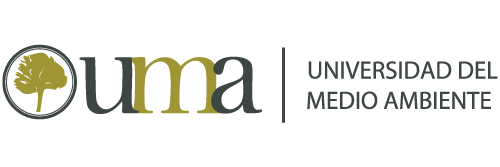Acquire the ability to design and carry out, in interdisciplinary teams, transformative and regenerative architectural projects.
The Master’s program in Sustainable Architecture, Design and Construction offers a way to form professional leaders capable of designing and bringing about, with interdisciplinary teams, transformative and regenerative architectural interventions. To generate environmental and social wellbeing, both on site and in the environment, students will acquire tools for technical construction, place analysis and co- design; as well as generate visions and values based on a profound scientific understanding of the present, while developing skills to implement projects with leadership collaboration.
Tools for site analysis
The Master’s Degree offers scientific knowledge and tools for site analysis, which permits the identification and understanding of environmental, social and economic resources and flows of the site and its environment, searching for sinergic architectural solutions that can adapt and be adequately used. Without the use of local resources or understanding the nature of the site, efficiency is not possible.
Tools to enable co-design processes
Participatory work is focused on future inhabitants and space usage, awakening voluntary commitment and capabilities through participation in design decisions, construction, and operation etc. This allows the project to work, grow on its own and last. A sustainable project comes about through a group of people who are involved; they are the basis for generating and organizing the process of design and its implementation within a form of collaboration.
Tools in constructive techniques
Bioclimatic design for energy efficiency and thermal comfort.
- Quantitative analysis of climate
- Strategies in managing the evolving form of the building
- Quantitative diagnosis of the thermic function of the building.
Systems for efficient management of energy and heat with solar energys.
- Photovoltaic energy systems
- Thermal solar energy
- Energy efficient models
- Legislation for energy models
- Integrated strategies for handling energy
High and low technology systems for treatment and efficient management of water
- Biological treatment of wastewater and reuse of treated water
- Water purification
- Rainwater harvesting
- Constructed wetlands
- Comprehensive strategies for water management
Efficient management of materials and waste
- Material cycles
- Waste separation and recycling
- Dry toilets, human waste utilization
- Advanced compost systems and vermicomposting
Low environmental and health impact construction materials
- Ecotechniques
- Material life cycle analysis
Permaculture
- Permaculture as a principle of design
- Urban agriculture
Visions and values: Sustainability, transformation and regeneration
One particularity of the Master’s Degree programs at the UMA is the core subjects, aimed at preparing the student as an agent of change. In these subjects, a deep understanding of the ecosystem, the social system and the sustainability vision is created; questioning and transforming the way we think and act.
The core subjects include three pathways to deepen the understanding, of environmental and social issues, questioning the occupation of the architect and the design process, and, in that space, create solutions that truly produce regenerative results: Sustainability: develop a profound understanding of the economic-social-environmental reality through models and tools from Systemic Thinking and Ecology. This is the base for conceptualizing and directing projects under a comprehensive and strategic vision based on philosophy, appointed principles and scientific backing. Transformation: To bring our society into a sustainable future based on our relative limitations in effort and energy, it is essential to design projects that work as systems that will endure, grow and reproduce themselves, in so generating contagious resonance, intervening as points of acupuncture that have a positive influence to the environment and society. Regeneration: In all projects we seek, not only the efficient use of energy, water and materials – which would only prolong the current model of society, but to contribute to the regeneration and abundance of our socio-environmental surroundings. In other words, we seek to produce positive net impacts, which is possible through working with and bettering the practices that already exist.
Project Development
During the Master’s Degree program, the students develop a project in a real context, choosing a theme and a place in accordance with their vocation. In this process, the students apply the tools they are aquiring, and they develop the skills for collaboration, planning and implementation. This allows students to not only stay in the knowledge and theory, but to practice and take charge of the tools, in addition to becoming proactive leaders and organizers who think and act according to their own values.
Examples of work for graduates of the Master’s Degree Program
Through developing and acquiring the knowledge, skills and visions described above, program graduates can choose any of the following career paths:
- Leading independent architect who proposes, designs and develops sustainable projects (several students have opened their office up or consulting firm during the Master’s Degree program)
- Architect responsible in sustainable areas in design firms, construction companies or government organizations
- Facilitator of interdisciplinary specialists in the integrative or participatory design processes for architectural projects
- Advisor or independent strategy consultant, design, construction and sustainable development
- Teacher of subjects related to sustainable architecture.

